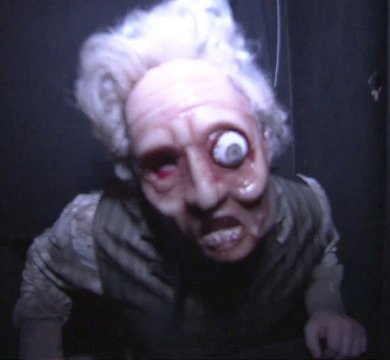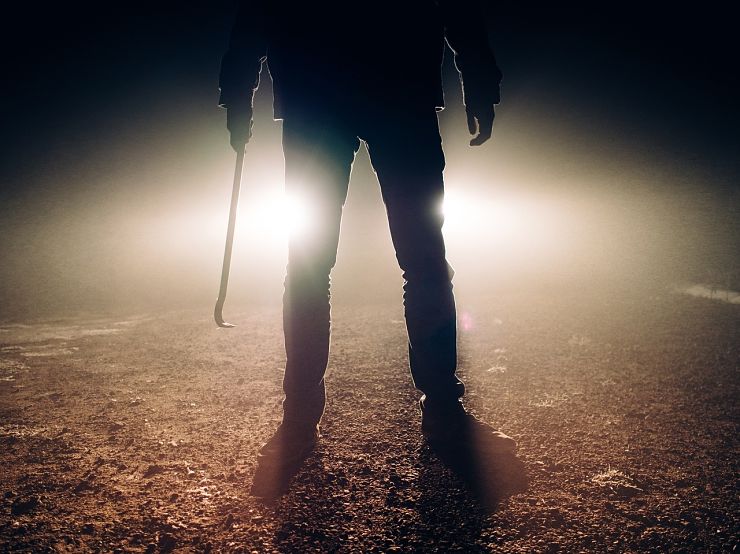It’s Halloween and we indulge in make-believe scary moments and call it fun.
In real life, fear isn’t so fun.
People up to their eyeballs in debt are scared witless by the thought of filing bankruptcy.
It frightens them more than haunted houses, ghouls, and blood-soaked bodies.
So really: what’s so scary about filing bankruptcy?
Three unspoken fears about bankruptcy
I have a theory formed after forty years of talking with people who’d rather be anywhere other than meeting a bankruptcy lawyer.
I think they fear
- loss of control over financial affairs
- the future with bankruptcy on their record
- public exposure as a financial failure
Loss of control
Filing bankruptcy passes nominal ownership of everything you have, outside of some kinds of retirement assets, to the Chapter 7 trustee for the benefit of your creditors. Not really reassuring on its face.
But in the real world, nearly 98% of Chapter 7 cases are no asset cases. That means that the debtor loses nothing to the bankruptcy trustee on behalf of creditors.
The trustee never inserts himself in their financial affairs at all.
Either their possessions have little net value or an exemption protects the asset for the debtor’s benefit.
In some situations, it may be hard to tell what assets are worth or whether they are saleable. The uncertainty makes it unpredicable to pass control to a trustee.
More about how Chapter 13 works
In such cases, a Chapter 13 is the answer. In Chapter 13, the debtor keeps everything he wants to keep, and pays some fraction of their value to creditors, in cash, over time.
Stay in control of your assets in Chapter 13
The debtor proposes the plan, the debtor suggests the values, and the debtor can get out of bankruptcy if the case should take an unexpected and unwanted turn.
Debtor in control: nothing to fear.
Future credit in doubt
The commercials that try to sell you some for-profit solution to your debt problem peddle fear. They want you to think that you’ll never get credit again if you wipe out your debts in bankruptcy.
Or, they tell you, it will be 10 years before you can get credit.
Nonsense.
Bankruptcy makes you almost instantly a better credit risk than you were before you filed. Huh?
It’s because there are fewer demands on your income. The old debt you were servicing is gone.
Bankruptcy does impact the cost of credit. Close in time to your filing, credit is more expensive. All other things being equal, the cost of borrowing goes down as you get farther from the bankruptcy.
The availability of credit and its cost depends on many factors and no one can predict all of them for some unknown point in the future.
What is almost universally true is that, loaded with debt, you probably couldn’t get more credit now even if you didn’t file for bankruptcy.
Public exposure
Bankruptcy can seem like the modern day equivalent of the public stocks, where those who misbehaved were exposed to public ridicule. That view of bankruptcy is mostly in your imagination.
Bankruptcy cases are in the public record, and anyone who wants to find out, can find out.
But tell me, how much time do you spend figuring out which of your neighbors and coworkers have filed bankruptcy?
You would also be surprised at how many people, famous and anonymous, have filed bankruptcy. They still have friends, homes, cars, jobs, and community respect.
Studies show that job loss, divorce, and illness account for a large percentage of debts leading to bankruptcy.
You won’t find yourself alone if you take the step to do something about your debt problem.
 Not so scary
Not so scary
So, savor the frightful and the scary on Halloween.
Just don’t carry that false fear over into your financial life.
Set aside fears about bankruptcy.
Instead, be afraid of not fixing a problem that has a solution.
More
How to interview a bankruptcy lawyer
Which chapter of bankruptcy is best
Can you spot the myths about bankruptcy?
Image courtesy of insidethemagic.







[…] writer had a financial stake in scaring people away from bankruptcy, so he could sell them debt […]